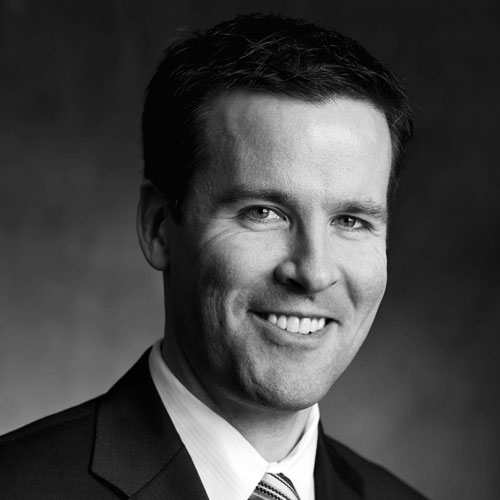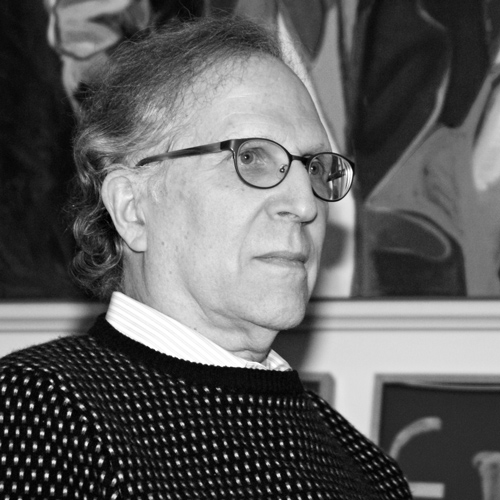Audrey Boone Tillman isn’t just the person Aflac calls on when it has a legal problem to solve. After working for the company for the past eighteen years, Tillman is one of its most forward-thinking, loyal, and influential members—and an exceptional leader to boot.
The route from staff attorney to general counsel was unconventional at best for Tillman, who spent twelve of those eighteen early years molding and shaping company culture in the human resources department, but that simply means she has a better-rounded view of the ins and outs of the business, she says. Both roles created experiences she draws on daily as she currently oversees the legal division, government and federal relations, compliance, communications, and the office of the corporate secretary.
“I look at leadership across any number of business units, and there are some things that I just think should be expected: that you understand the organization and the benefit that your area brings to the overall enterprise, and also the cultural shifts and the industry shifts that take place,” she says. “As a lawyer, if you don’t understand that, then you don’t know how to tailor your responses and advice to make it relevant to that business today. You can give the answer, so says the law, but what I expect is a step further.”
As a leader, Tillman walks a fine balance of being creative, open, and receptive, while also being incredibly hardworking—a combination that has helped create a positive company culture, and subsequently, some notable accolades. This year Aflac landed on Fortune magazine’s 100 Best Place to Work list for the seventeenth consecutive year, and Ethisphere’s list of most ethical companies for the ninth consecutive year, both distinctions that Tillman directly helped the company achieve. Ask her about the laurels, though, and her inherent sense of humility shines through.
“I never had to do anything or promote anything for the purposes of a publication or accolade that really wasn’t who we are at our core,” she says. “I take a lot of pride in the fact that we are genuinely a great place to work, with or without the accolades. We are a place that holds the highest standards of ethics and integrity of our leadership, and employees and people know that.”
Read more of Profile’s Top 50 articles.
While she can’t see herself doing anything differently today, Tillman’s path to becoming a lawyer was one of happenstance. It wasn’t until a college adviser and professor suggested the career path that she even considered the idea. “I didn’t come from a family of lawyers or anything like that where I sought out to be a lawyer. I was more led by, and still am, what is interesting to me,” she says.
As it turns out, the law was something she became deeply passionate about after graduating and completing a federal clerkship for Richard Erwin, chief district judge for the middle district of North Carolina. “As strange as it may seem, you don’t really learn [how law works] in law school. You just learn what the law is,” she says. “That experience with Judge Erwin—who I just came to adore—showed me in real time and in Technicolor exactly what I was about to get into.”
From there she dipped her toes into the corporate world for a short stint at Smith, Helms, Mulliss, and Moore, working with “really great, smart lawyers,” and getting a foothold in court, before spending a few years on faculty at North Carolina Central University School of Law teaching practical law courses. It wasn’t until her family relocated to Columbus for her husband’s job that she started to work at Aflac.
After being hired as a staff attorney in the legal department, she was presented with the opportunity to make meaningful change in the human resources department when the company reorganized in 2001. The move was a curveball for the attorney who was enamored with the law, but she welcomed the challenge with an open mind, saying, “I’ve never really been reluctant to get outside of my comfort zone.”
Right out of the gate, Tillman made direct contributions to the company’s bottom line. First, she tackled turnover rates. After calculating that $1 million could be saved for every single percentage reduction in turnover, her team eventually reduced rates to under 10 percent in traditional areas of business, and around 15 percent for divisions that historically have much higher turnover, like call centers (numbers typically reach 30–40 percent in that department, she says).
“That was a big shot of adrenaline for the division,” Tillman says. “It positioned us in a different way and showed that we could impact profitability here, which is exactly what I wanted.”
Finding and implementing ways to positively impact profitability is certainly a big point of pride for Tillman, but she says her role in human resources was also about influencing company culture.
“The three Amos brothers founded the company on the premise that if you take care of the employees, the employees will take care of the business, and so that connection with the employees was something I reiterated in the twelve years I was affiliated with HR,” she says. Whether evaluating and changing health-care policy offerings to cater to single-parent families, hosting and shaping companywide meetings, or cutting ribbons and judging pie contests, no task was too small or insignificant.
Since moving back to the legal department in the role of general counsel, Tillman’s motivation to keep employees engaged and working toward a common goal remains strong. One of her first projects as general counsel was sending leaders of the compliance team to the field for ridealongs with the sales force in order to generate stronger communication between each department.
“At a minimum, [compliance] made contact with the force and developed networks that they can use and build upon,” she says. “Now they can have a sounding board to say ‘Hey, we’re thinking about this, how might that play out in the field?’ That’s the kind of dialogue and interaction you’ve got to have with your customer in order to really be successful at serving their needs.”
Tillman has also been developing a corporate compliance board. Aflac has always excelled in this area, she says, because the company culture is one that upholds a strong ethical system, integrity, and transparency. Streamlining communication processes simply enhances systems for all involved parties. Tillman created a global board with every Aflac location, including Japan, one of the company’s largest outposts (Aflac is the largest insurance company in that country). Through purposeful dialogue on issues like mitigations strategy, compliance issues, security awareness, and other topics, all locations are now formally on the same page, and new initiatives—like a third-party run hotline for employees to report compliance issues—are emerging from the process.
This level of integration, understanding, and loyalty that Tillman has instilled in the legal team (and elsewhere in the company) is one of the reasons why they are so successful at helping other departments solve problems creatively and develop practices that might work better for the future.
That success also illustrates one of the strongest arguments for any company bringing their counsel in-house, she says. “If your group of lawyers is not plugged in and aware of where the business is trying to go, and they’re just bringing legal advice and information, I don’t know if that is ultimately valuable to the company,” she says. “You can get that from outside counsel. What you can’t get is a thought process about what is going to be best for your organization. That has to be done by someone who knows it and has a vested interest in its ultimate success.”
For the next year, the drive continues. Tillman will be working closely with the Japan office to integrate business practices at an international level and work on “getting a handle on” the interplay between the international, federal, and state interactions as they relate to financial services and insurance. Those types of discussions weren’t taking place when she left the department to go to human resources in 2001.
“Now they’re at the forefront of most conversations,” she says. “Something that comes up from an international regulatory agency or association will have a direct impact on the work that’s going on the federal or state level, so we can’t afford to operate solo.”
Luckily, Tillman is as flexible as she is sharp, and taking on new challenges in her role as general counsel will be a welcome part of her everyday hustle. “I’m far from a workaholic; I do have a life and a family that I appreciate and love, and so it’s not all work,” she says. “But I do feel like in this first year, to really get my hands around everything and make the relationships I need to be successful, I’ve got to put in the time.”



